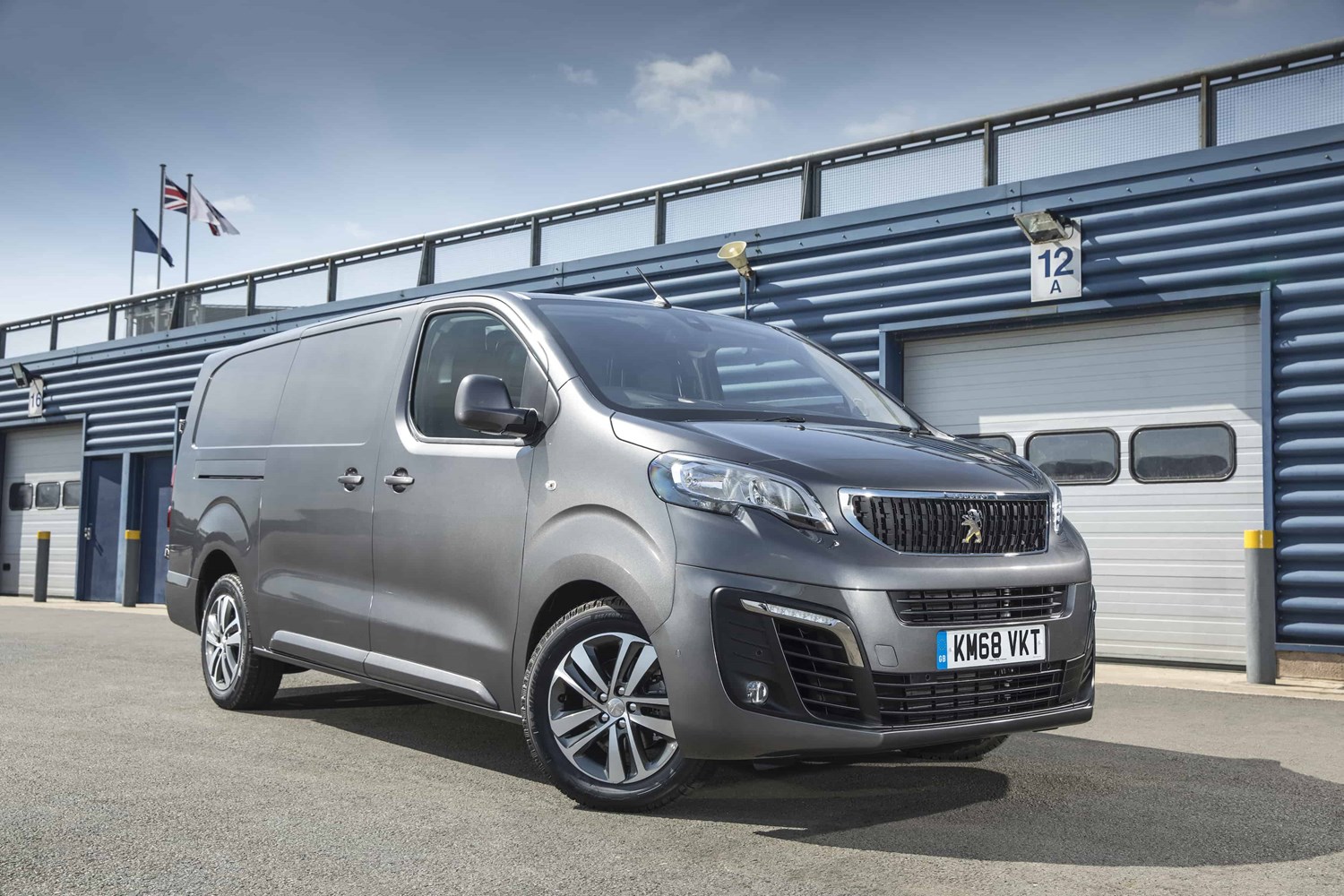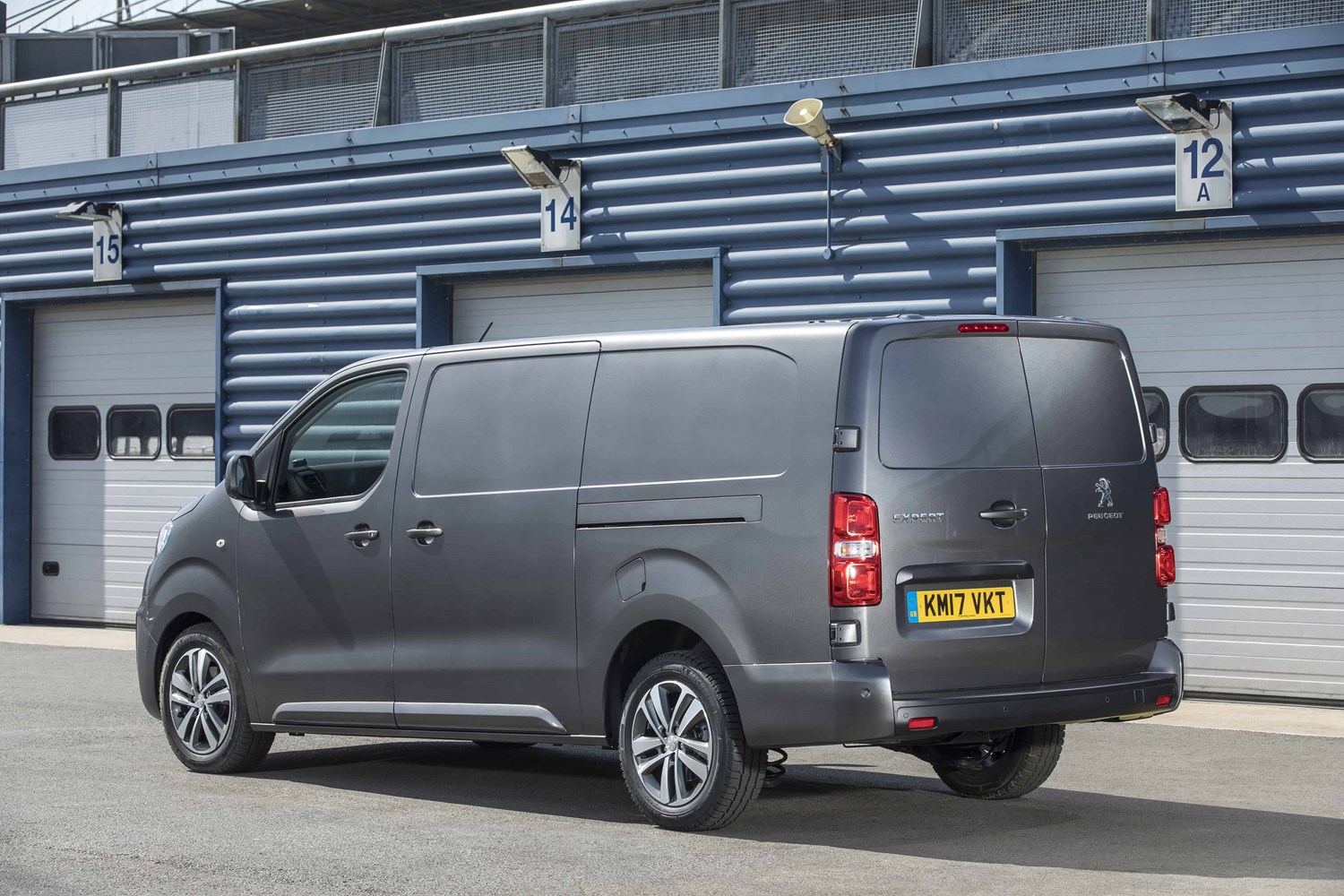Current model
As well as a whole new look, the Expert is the product of two parts, the rear end is an evolution of the outgoing van, while the front end is based on the EMP2 platform that underpins a number of cars, too – including the latest Peugeot 308 and Citroen C4 Picasso respectively. That means it benefits from a greater choice of engines taken from mainstream production cars.
Not only does that mean it’s more car like to drive, but it also gets the benefits of a more comfortable interior and is available with some of the latest safety equipment that’s available in Peugeots arsenal.
The latest model also gets a range of diesel engines that meet Euro 6 emission standards and are the most economical and have the lowest emissions in its class. The introduction of a ‘Sport’ version towards the end of 2019 has added additional style to the Expert range, too.
Value for money
The Expert range starts from £22,375 (excluding VAT – all the prices in this review will too), which makes the Expert a very good value proposition, though those entry-level models are quite sparse. Three body lengths are available, with the standard- and long wheelbase versions adding £700 and £1,600 on top of the price of the regular ‘Compact’ version. Prices keep rising to over £33,000, which is a lot of money considering it would be £44,500 if VAT was included. Mid-spec versions therefore feel like the best bet in this van’s line-up.
Though if you’re looking for used examples, there are some fantastically cheap options out there, with models starting from just £6,250 on the used market. That will, admittedly, get you a low-spec example with around 100,000 miles on the clock, though. Expect to pay around £8,000 for a 2017 version that’s covered a more reasonable 40,000 miles. That said, big discounts also exist for higher-spec versions. A top-spec one-year-old example with a modest 20,000 miles on the clock can be had for just £14,000 – meaning it will have nearly halved its list price in just 12 months.
Looks and image
Unlike Peugeot vans of old, the Expert has a stylish, unique look to it, which really makes it stand out. That’s not only against sibling vans, but also against some of the big sellers in this – models like the Volkswagen Transporter and Ford Transit Custom, for example. That may sound odd especially when you consider the only real changes are the headlights, tail lights and front panels, but it’s enough to make it stand out over other vehicles in this sector.
The quality of the cabin materials is also a marked improvement over previous offerings, with comfortable seats, and a logical, well-laid out dashboard. It still manages to be durable and hard wearing, but also have a pleasant feel to it too.
You don’t sit as high in the Expert as you do in some of its rivals, which is one of the drawbacks of it coming from a car platform, however there’s a good range of seat and steering wheel adjustment – ensuring you shouldn’t have any trouble getting a good driving position.
The windscreen is a little narrow and the wing mirrors a bit small, so visibility is a little hampered, especially when negotiating tight parking spaces.





